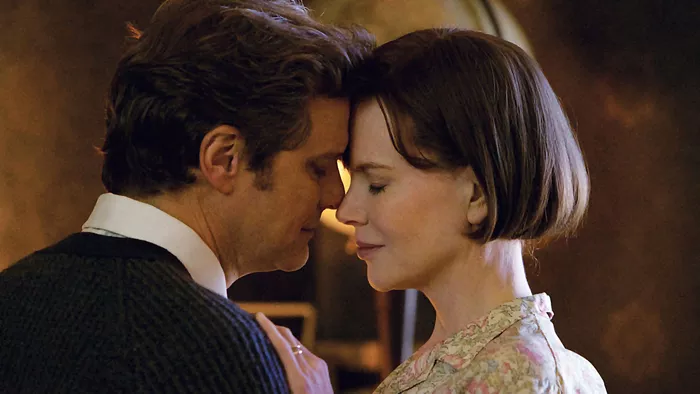
Audio By Carbonatix
[
{
"name": "GPT - Leaderboard - Inline - Content",
"component": "35519556",
"insertPoint": "5th",
"startingPoint": "3",
"requiredCountToDisplay": "3",
"maxInsertions": 100,
"adList": [
{
"adPreset": "LeaderboardInline"
}
]
}
]

The Railway Man | B
Draped in layers of mousy browns and hidden under a bristly mustache and eyeglasses the size of a cartoon inspector’s magnifying glass, Colin Firth stars as Eric Lomax, a lonely, middle-aged English railway enthusiast who whiles away the hours going to rare book auctions and studying train schedules. On one of these rambles, he bumps into Patti (Nicole Kidman), woos her with his advanced knowledge of the quickest routes from Nottingham to Inverness, and they begin a very tentative, very British, flirtation.
Soon this courtship blossoms into a romance that reeks of clotted cream, marmalade and milky tea. They are married and for a time everything is lovely, but eventually the chatty and erudite husband begins to withdraw into moody silence and dreadful night terrors, and his new wife is at a loss to understand him. Now, what could have been a gentle love story offering mild pleasures for anglophiles evolves into something altogether different.
Eventually we learn that as a young man Firth’s character was an army officer, played in the flashbacks by Jeremy Irvine, and in 1942 he became a POW in a labor camp on the Thai-Burma Railroad, the same one depicted in David Lean’s epic Bridge on the River Kwai. Suspected of spying by his Japanese captors, Lomax is repeatedly beaten and tortured for months on end, long after most men’s breaking point.
The horrors he endured have never left him, or his war time comrades like Finlay (Stellan Skarsgard), and these men all suffer from depression connected to post traumatic stress disorder, a condition that was not well understood, or even fully acknowledged by most of the “greatest generation.” At his wits’ end, Eric decides to take action, returning to Asia to confront his main tormentor, Nagase (Hiroyuki Sanada), who is now working as a tour guide at the same camp where he once participated in torturing prisoners. Once the old adversaries are face to face, they and the audience are forced to decide what they want from this confrontation: revenge or forgiveness. Neither is an easy choice.
Firth is marvelous, drawing us in closer to the inner life of a man that could easily seem boring, bitter or obtuse. The three main stars never falter, even as some of the scenes — especially in the flashbacks — start to wobble unevenly. Director Jonathan Teplitzky struggles to balance the many tones between tenderness, savagery and mawkishness, a feat that would be tricky even for veteran filmmakers. As the film ricochets between timelines, there is a slight sense of whiplash, and a loss of urgency. As fascinating and moving as the subject is, the drama doesn’t always match its lofty ambitions. At times Teplitzky isn’t sure whether to treat this difficult material as a thriller or a therapy session, and neither is the audience.
The Railway Man is rated R, runs 116 minutes and is in theaters now.





